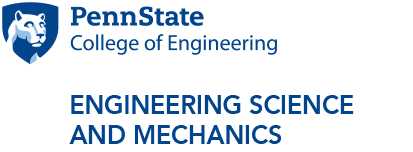Topological Elastic Waveguides: exploring analogue quantum mechanical effects to tailor wave propagation in classical elastic waveguides
Abstract: Inspired by recent discoveries of topological phases of matter in quantum physics, there has been a rapidly growing research effort to uncover analogue mechanisms in classical wave physics, including acoustics and elastodynamics. By acting on either time reversal symmetry or parity, material systems obeying the laws of classical mechanics were endowed with dispersion properties reminiscent of selected quantum mechanical systems. Among the many remarkable characteristics of these materials, their ability to support unidirectional propagating waves is particularly significant and it could serve as the foundational property to achieve robust waveguides even in presence of disorder and defects. This talk will review recent efforts to design, develop, and experimentally validate continuous and load-bearing phononic structural waveguides capable of unidirectional elastic guided modes along the walls of topologically distinct domains. More specifically, designs that behave as analogue of the quantum valley Hall and the quantum spin Hall systems will be discussed. A combination of theoretical, numerical, and experimental results will be used to illustrate how unidirectional propagating guided modes can be achieved at the interface between elastic material phases having different topological order. These so-called edge states are topologically protected against backscattering, hence allowing efficient elastic energy transmission even in presence of defects and disorder. Such unique propagation properties could have a profound impact on the development of many real-world applications and on the performance of practical devices whose operating mechanism is rooted in the physics of acoustic and elastic waves.
Bio: Dr. Fabio Semperlotti is an Associate Professor in the School of Mechanical Engineering at Purdue University and holds a courtesy appointment in the School of Aeronautics and Astronautics Engineering. He received a M.S. in Aerospace Engineering (2000), and a M.S. in Astronautic Engineering (2002) both from the University of Rome “La Sapienza” (Italy), and a Ph.D. in Aerospace engineering (2009) from the Pennsylvania State University (USA). Prior to joining Penn State, Dr. Semperlotti served as a structural engineer for a few European aerospace industries, including the French Space Agency (CNES), working on the structural design of space launch systems (such as Ariane 5 and Vega) and satellite platforms. He is a member of the Ray W. Herrick laboratory and directs the Structural Health Monitoring and Dynamics laboratory (SHMD) where he conducts, together with his research group, research on several aspects of structures and materials including structural dynamics and wave propagation, elastic metamaterials, structural health monitoring, and computational mechanics. His research has received funding from a variety of sources including the National Science Foundation, the Department of Defense, the Department of Energy, and industrial sponsors. Dr. Semperlotti was also the recipient of the National Science Foundation CAREER award (2015), the Air Force Office of Scientific Research Young Investigator Program (YIP) (2015), the DARPA Young Faculty Award (YFA) 2019, and the ASME C.D. Mote Jr. Early Career Award 2019.
Additional Information:
For Zoom information and password, please contact Lisa Spicer at lms8@psu.edu
Media Contact: Lisa Spicer



